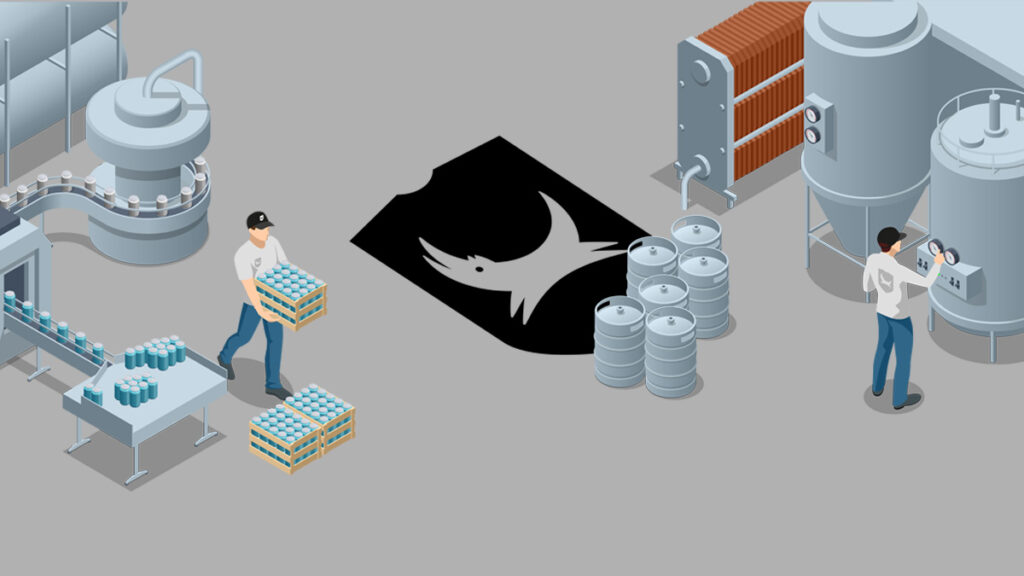From toxic workplace to best employer: BrewDog’s astonishing turnaround

A crisis is a sliding doors moment for any business. A reputation built up over decades can be destroyed in hours by a botched response to a major issue.
Controversy is nothing new to BrewDog. Since its establishment in 2007, the self-described ‘Punk’ of beer brewers have intentionally stirred the pot with shock strategies and as much profanity as possible.
Punks with Purpose
Difficult times can give a fresh incentive for companies to consider who they are, what they stand for, and what they hope to achieve. However, going from allegations over abuse of power and rumours of a toxic workplace to landing a place on the Sunday Times’ Best Place to Work listing is a big jump, even for the most positive of people.
In BrewDog’s case, issues stemmed from internal challenges. Punks with Purpose, a workers’ rights advocacy group striving for change, brought attention to concerns of a toxic workplace, including allegations of a culture of fear, pressure, and employee harassment.
The company’s rapid development and desire, according to the former workers, had resulted in a disrespect for its employees, making working conditions difficult and unfriendly. Last year, Hand & Heart and Punks with Purpose, launched The BrewDog Affected Workers’ Platform for impacted BrewDog workers to independently register their employment experiences. BBC documentaries and podcasts followed.
Changing tides
The Aberdeenshire-based brewer began to experience a shift, thereafter, including a pay review, additional resources, and an independent evaluation that consulted all 1,694 employees.
Fast forward to today, and Brewdog is listed among The Sunday Times’ Best Places to Work in 2023. The Top Employers Institute certification assesses companies via an independently audited and fact-based HR Practices Survey, covering Steer, Shape, Attract, Develop, Engage, and Unite.
The list recognises companies that create a happier and more fulfilling working environment, by fostering engagement from their teams, yielding great business and performance in return. That is a far cry from the BrewDog of 2022. What a difference a year can make.
Tick tock
Timing is everything when dealing with a crisis. Say and do nothing and you’ll create a vacuum that will be filled with other people’s take on the situation, only adding fuel to the fire.
Matthew Hayes, the managing director of Champions UK plc., believes that when dealing with reputational crises, the key to a successful business strategy is consistency. Often when there is bad press, businesses fall into the trap of reacting immediately, which tends to escalate the situation, either by confirming there was a problem or presenting a loss of direction as to what they stand for.
“Make sure the strategy is based around a unique mission ethos, for example, believing in something that is unique to you and your business, and then be consistent in its delivery.
“If a business reacts quickly and in a positive way, the challenge itself can improve the ongoing relationship, as it demonstrates the way in which a business goes about confirming what it’s about and what matters to it,” he says.
Highs and lows
Last year BrewDog opened two global flagship bars in Waterloo and Las Vegas, and there is an exciting pipeline of new bar openings, including at Gatwick Airport. They reported record revenues for 2022 and current trading is very strong. Boasting five of the fastest-growing beer brands in the UK, including Lost Lager, BrewDog is now ranked the world’s 14th most valuable beer brand by Brand Finance, overtaking Carlsberg for the first time. Seems too good to be true…
Jonathan Hemus, managing director of crisis management consultancy Insignia and author of the award-winning book, Crisis Proof, thinks that BrewDog was helped in that its values and reputation have always been based on a maverick and anti-establishment approach, meaning that rather than damaging it, many of its ‘crises’ have in fact further reinforced its position as a maverick.
“Similarly controversial behaviour by a staid bank would not have played out so well,” he adds.
When asked about the recent transformation, going from allegations from former employees to Best Place to Work awards, James Watt, BrewDog co-founder and CEO, said that life in a fast-paced, high-growth business isn’t for everyone, but BrewDog has always been fully committed to doing the best they can by their people.
“That includes our commitment to paying the Real Living Wage, our unique company-wide profit share scheme, and amazing signature benefits like giving our people time off to look after a new puppy (we call it pawternity leave). Over the past two years, we have continued to invest in our governance, our team’s development, mental health support, progression opportunities and our employee ownership program. We are determined to continue to improve every element of what we do,” he said.
But is it enough?
Supporting start-ups
Alongside Trigger Happy TV star Dom Joly and professional investor Codie Sanchez, Watt is putting £5m of his money on the line to help make a success of start-ups in the Next Unicorn competition. 750 keen entrepreneurs sent over their ideas, which were whittled down to 14 to pitch to Watt in person.
Having originally planned to back three out of the five businesses, Watt is now backing all five finalists, including edible bug business Yumbug, and Tallow & Ash with their planet-friendly laundry detergent. He announced that all five finalists will each be taking home a share of his investment – backing an extra two firms who expected to miss out at the contest’s Las Vegas final.
In a world-first, investment is now open via Crowdcube, allowing members of the public to invest in the five winners on the same terms as Watt. Given that hundreds of people applied, it’s clear that many are ready to ignore any current difficulties concerning Watt.
This is a sign that nothing sticks forever and possibly that controversies are more digestible when cash is involved.
Inclusive culture
Whether it’s meaningful change or merely paying lip service depends entirely on who you talk to, but BrewDog has partnered with LGBTQ+ charity MindOut, to help raise awareness of its mental health services and provide access and support to staff and customers.
Lauren Carrol, chief marketing officer at BrewDog, acknowledges there is always more to do.
“We’re not perfect, but we’re committed to making BrewDog a great place to work, and to support LGBTQ communities that many of our employees and customers are a part of.
“Through our partnership with MindOut, we are delighted to support the fantastic work they do in Brighton and beyond. We take inspiration from the work they do as we continue to evolve and develop our DE&I policies to make sure every BrewDog employee and customer feel welcome, safe, and included in our spaces all year round,” she says.
The beer brand has announced that 50p from each sale of the limited edition 4.5% guava-infused Pride Month lager will go directly to the charity. Given that BrewDog’s culture seemed to slowly sour like beer left outside on a scorching day, any good associations are welcomed.
Meaningful change
Crisis situations are catalysts for meaningful changes and can position companies in a much healthier place to deal with problems going forward.
Martin Calvert, marketing director at ICS, points out that often the most effective strategies are the ones that involve doing hard work in the right way. If there is fundamentally no change, then ‘astroturfing’ reputation will not help and the difference between the public story and the real situation will be even more damaging.
Watt published an open letter to the brewery’s ‘haters’ after the company was named on The Sunday Times’ Best Places to Work 2023 list. The letter, published on LinkedIn, was addressed to “the small group of individuals who seem to have made it their life’s work to take down our company.”
Calvert raises this approach as possibly problematic when repairing reputations.
“In order to equip PR professionals to do their jobs well, there has to be actual meaningful change and a story that isn’t easily punctured. With BrewDog, it feels like there are still some risks given the borderline aggressive tone used by company representatives when the topic of their reputation comes up,” he says.
No one wants to endure a crisis but, ironically, they provide a catalyst for positive change that less dramatic circumstances rarely do.
Legal implications
When transforming reputations from bad to brilliant, Ashley Hurst, partner at Osborne Clarke, says that a good corporate reputation has all sorts of advantages from a legal perspective.
“It means that the media will be more sceptical over damaging allegations and the company will find it easier to establish relationships with key stakeholders, including regulators.
“From a litigation perspective, it’s easier to take the moral high ground when coming from a position of reputational strength. Conversely, threats of legal action from a company that is on the ropes from a reputational perspective can lead to counterparties and journalists digging deeper for bad news,” he says.
John Morgan, principal associate at Eversheds Sutherland, reveals that the organisations who are most successful in truly resetting or evolving their culture and reputation are those who genuinely engage with their past (even where they believe allegations are undeserved), and use it positively and purposively to design their future organisation.
“The perception of fairness for staff and others cannot be underestimated – a brilliant reputation can transform your workplace, employee engagement, productivity, loyalty, recruitment prospects, and of course reduce the risk of claims or allegations. In large companies, whether private or listed, employee voice is part of corporate governance reporting requirements, which can therefore lead onwards to improved investment or sales opportunities and a well-deserved reputation for both S and G in the ESG sphere,” he adds.
A thorough investigation into not just certain circumstances or complaints, but overall culture in a more holistic way is important, according to Laura Pharez-Zea, principal associate at Eversheds Sutherland.
“This can lead to some hard and perhaps unanticipated conversations about people, structures and ways of working, and whether these are optimal. Organisations which carry out these steps are then well-placed to move forward and create their new story. They have a clear idea in mind of their ideal organisation and bring colleagues along on the journey, often by consulting and discussing with them each step of the way,” she says.
“The BrewDog case study is helpful in demonstrating how lawyers need to work with communications and commercial teams to ensure that the legal strategy is consistent and complementary to wider strategic aims,” advises Hurst.
The power of social media
According to Natalie Topham, head of content at strategic marketing communications agency MC2, social media, and LinkedIn specifically, has become a powerful medium where CEOs and business leaders can directly control the narrative.
“Penning open letters, as James Watt has done, aims to increase transparency and build authenticity. He’s steadily shifting the story from it being a company marred by serious employee complaints, to one that is learning from its missteps and putting their people at the heart,” she adds.
Lessons can be learned
Pharez-Zea believes that challenges to reputation, particularly where these take place in the public eye, tend to provide real opportunities for a cultural reset.
“We increasingly see organisations facing such crises immediately holding themselves to a higher standard and the minds of senior leaders become focused on achieving root and branch change. Companies which face the need to reform their reputations need to engage with their past, present and future,” she says.
While, sadly, many leaders will breathe a huge sigh of relief and swiftly move on when a crisis is extinguished, more enlightened businesses will use it as an opportunity to learn and improve, according to Hemus.
“They will rigorously identify the conditions that allowed the crisis to occur and look for ways to prevent a repeat. They will assess the effectiveness of their response and whether additional training, resources or support is required in future. Crucially, they will act on the learnings and make the business more resilient as a result,” he says.
Crises provide a great opportunity. Watt reflects on what can be learned after going through difficult times.
“You have to be both humble and confident. Humble enough to recognise where there is room for improvement (there always is), and confident enough in what makes you unique. One of the most important things we’ve ever done as a business is to commission an independent review of our culture. It was a brilliant exercise and gave so much insight and ideas for how we can continue to put people at the heart of our business,” he adds.
Growth must benefit employees and founders
Calvert says that companies sailing quieter waters might not address shortcomings fully, but for companies facing an existential threat or being challenged about their values, the point can be forced – with a positive lasting legacy.
It is always better to get your house in order instead of scrambling to clean up a mess. Be prepared, get on the front foot, and take control of the narrative.



